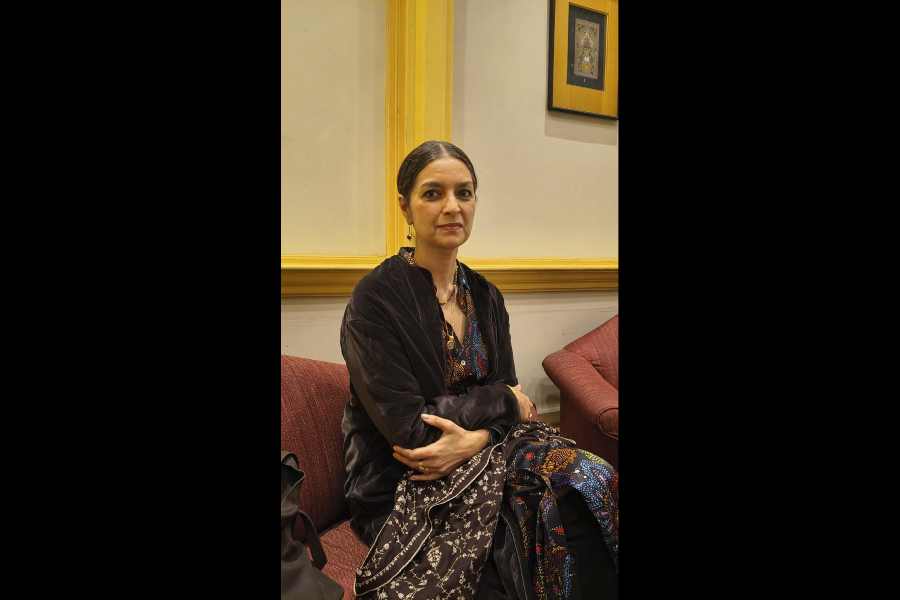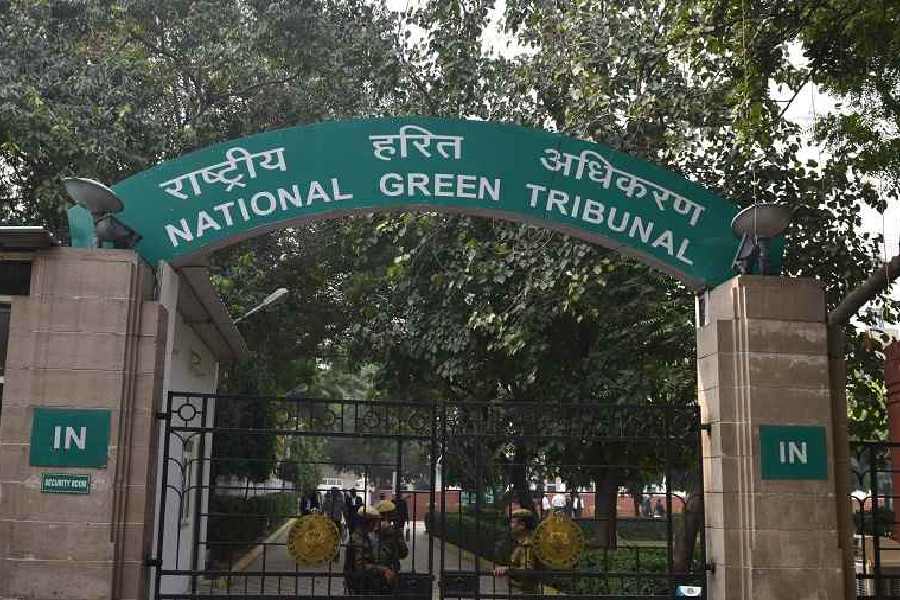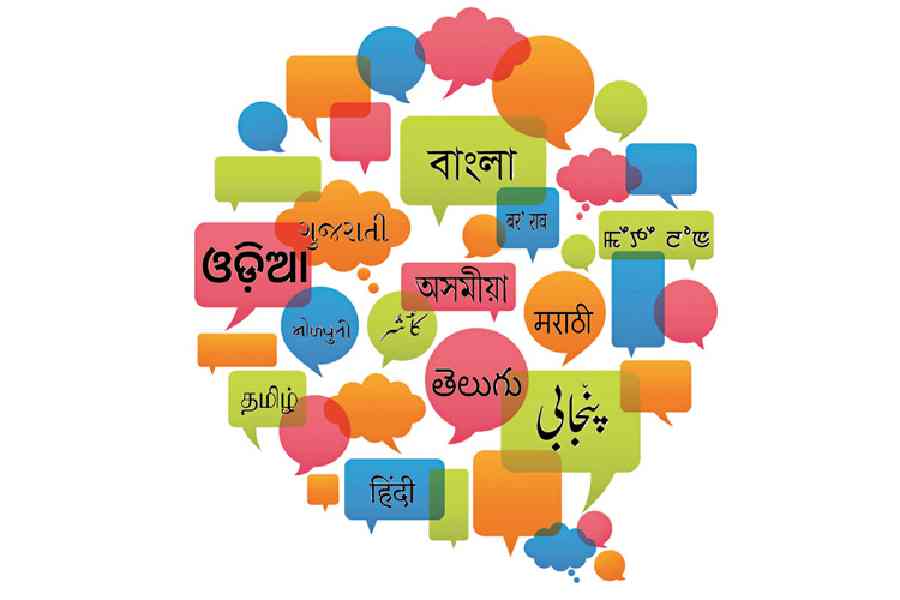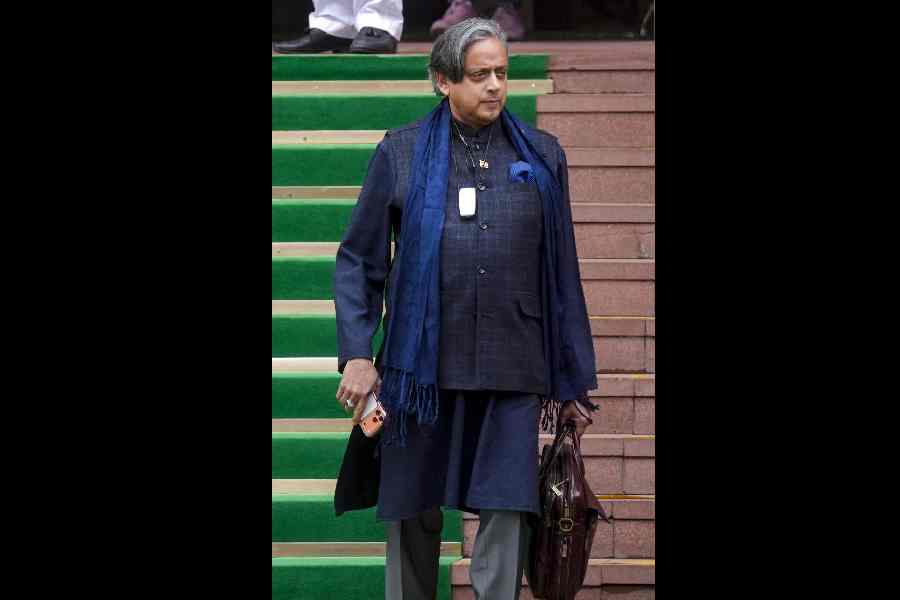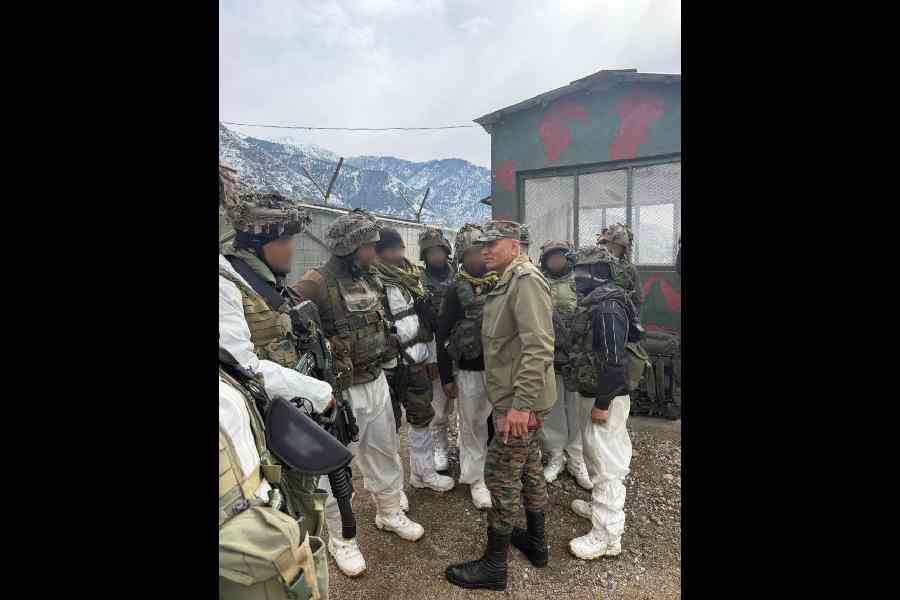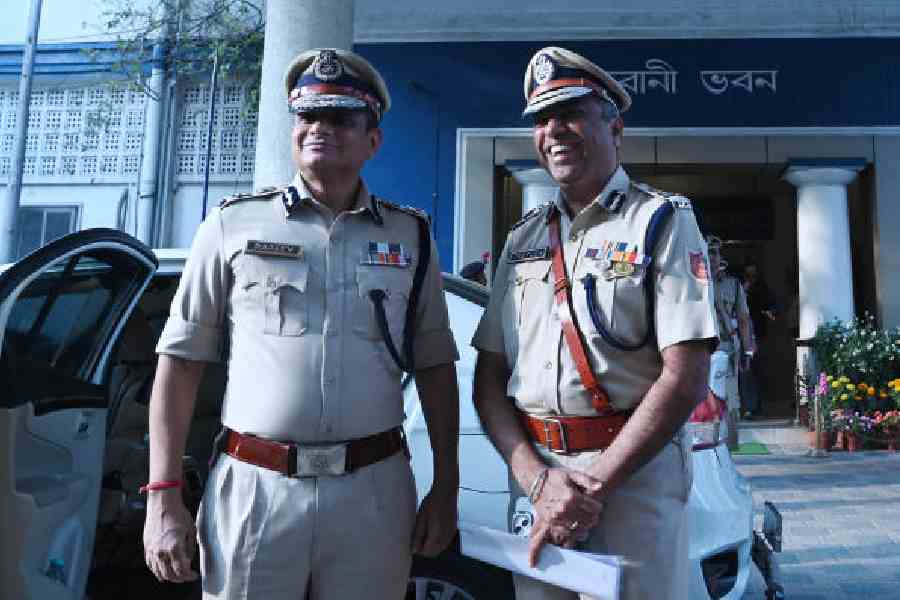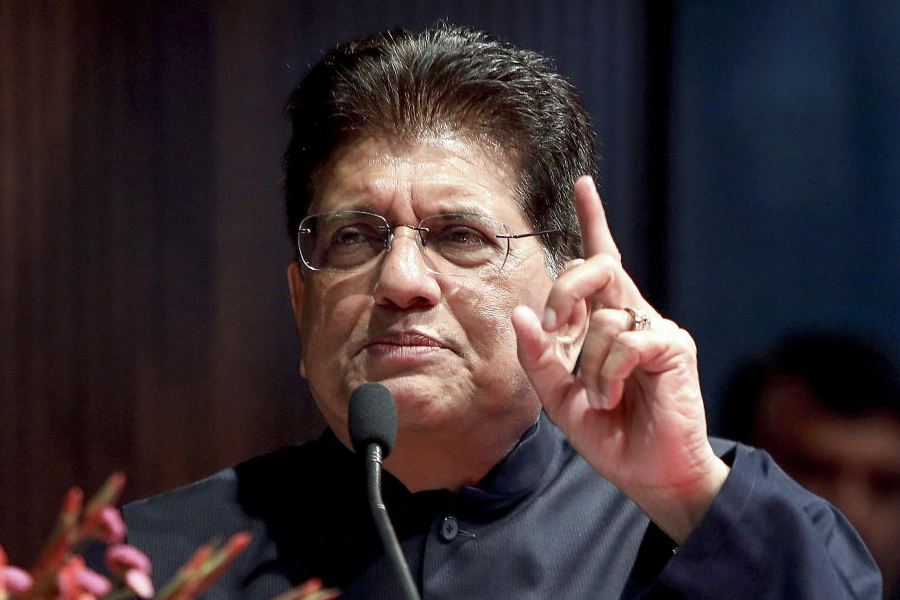 |
| Calling the shots: Bhaskar Ghose; cover of his recently launched book, Doordarshan Days |
 |
Bhaskar Ghose is back at the draftsman’s table, almost a decade after retirement. He has just been summoned by Lok Sabha speaker Somnath Chatterjee to put on air a brand new television channel, dedicated to the proceedings of the lower house of Parliament. The bravest of men and women would balk at the thought of a 24x7 channel on the Indian Parliament. Not Ghose, though. He is looking at ways of making it viewer-friendly, with debates, analyses and perhaps even cinema. After all, he did that with a sleep-inducing machine called Doordarshan nearly 20 years ago.
“This time, however, I’ll be starting from scratch,” says the former director general of Doordarshan, sitting in the comfort of his spartan, sixth-floor flat in an east Delhi high-rise originally constructed for members of the Indian Foreign Service. “It’s going to be a lot different from my previous stint with television, when I was trying to refashion something which already existed. And of course, I’ll be wiser and more careful. Once bitten, twice shy, as they say.”
Ghose’s jestful comment is an obvious reference to his eventful years at the helm of India’s national television channel, between 1986 and 1988, followed by his stint as secretary, ministry of information and broadcasting (I&B) from 1993 to 1995. Ghose ? who now divides time between theatre and penning columns for several publications ? says he avoids writing too many pieces about Doordarshan, having no wish to talk about something he no longer recognises. A little ironic that, considering that his newly-published book, Doordarshan Days, says it all, at times revealingly so.
Point that out to him, and Ghose is quick to go on the defensive. “Well, I did say I didn’t want to talk about it, but I suppose I always wanted to write about those days,” he says, as his face breaks into a wide grin. It’s the unmistakable expression of one who, in spite of his apparent disinterest, simply can’t resist sharing with the world the tale of his love-hate relationship with the business of televisioning.
It was in the midst of a wet north Bengal monsoon and ongoing negotiations with the Gorkha National Liberation Front that Ghose ? serving as commissioner in north Bengal ? was summoned by then Prime Minister Rajiv Gandhi to take charge of the country’s sole TV channel. It was, for the civil servant from the Bengal cadre, a bolt from the blue ? Ghose had no hands-on knowledge when it came to running a television channel.
“I guess it was my experience in theatre that cut me out for the job,” says Ghose, in retrospect. “The primary objective for Doordarshan in those days was to capture an audience, which is what theatre is all about,” he says.
Ghose knows his theatre ? having been involved in plays, right from his student days in St Stephen’s College, for over 40 years. There is high drama on the wall behind him as well, as he sits under a mounted Rajasthani Phad painting of battle and gore. He punctuates his sentences with a deft gesture of the hand, and occasionally mimics a high falsetto to underscore an issue. Rajiv Gandhi had a point there.
And, clearly, the young Prime Minister ? surrounded by a ring of smart technocrats and bureaucrats ? wanted to pluck Doordarshan out of the grasp of khadi-clad politicians and acquiescent babus. And who, he’d have reasoned, would be better at doing that than a bureaucrat with a fondness for the arts? “Technical aspects apart, running a TV channel is essentially a management job, which a civil servant like me could well handle,” says Ghose.
But it didn’t take long for Ghose to realise how difficult his task was going to be. For Doordarshan those days, as he puts it, was a Jurassic affair. Some saw it as an official propaganda machinery, and some others as a platform for patronage, replete with shoddy programmes and technical inexpertise. Link failures between stations gave cult status to the board that unceremoniously said: “Rukavat ke liye khed hai” (Sorry for the interruption) ? a sign that many believed underlined the halted thinking that took place in Mandi House, the headquarters of Doordarshan.
To top it, Doordarshan was another word for political and administrative interventions. “In those pre-satellite TV years, Doordarshan was the singular obsession of several people who thought they could use it to their advantage,” says Ghose. “Politicians, for example, found TV compelling ? they thought it could win them elections.”
The friction was too much for all of Ghose’s plans to be executed satisfactorily. Several of his ideas, such as creating a professional news service for the channel, died a humble death. At the end of the day, it left Ghose with mixed emotions ? the satisfaction that came with achieving certain things was negated by frustration that botched projects brought along with them.
But above all, the stint left Ghose with several memories, good or bad, many of which he has penned in his book, launched last month.
Doordarshan Days is a goldmine of anecdotes, from those steeped in political motives to others outrageously hilarious. And what sets the book apart from other bureaucratic memoirs is the amazing frankness with which Ghose chooses to tell his tale.
For example, producer Ramanand Sagar ? “the old bandicoot” in Ghose’s words ? finds an entry for his thoughtless (and artless) but shrewd approach towards the making of the epic serial Ramayana. “You should have seen the pilot episodes,” Ghose smirks. “They were awful!”
In other sections, former I&B minister K.P. Singh Deo is remembered for his obsession with putting up new transmitters, and as the kind who returns a favour to a railway official by pushing an amateur dance recital by the latter’s daughters into the top-notch national programme. P.A. Sangma, another former minister of I&B, is mentioned as much for his wily ways as the smile which remained plastered on his face.
“The fact that I have taken names may annoy some people, but I have done so simply to tell the truth,” Ghose says candidly. “And since all that I have written about actually happened, where’s the problem in talking about them?”
Despite the impediments, however, Ghose did succeed in having his way with a few things that were to rewrite television history in India in the years to come. “I could have done more, but I didn’t stay in office long enough,” says Ghose with a wry smile. Political pressure led to his premature exit from Doordarshan.
But then, it was during his reign that news began to be read out of faces instead of glossy heads staring into the camera. The Lok Seva Sanchar Parishad was constituted to promote public awareness.
It was under Ghose’s charge that DD Metro, DD III and DD International took off as alternative channels. Elections began to be covered live on television. And it was due to his efforts that a controversial serial like Tamas, based on Bhishm Sahani’s novel, was aired on TV.
The most satisfying experience for Ghose, however, remains the live telecast of the 1987 cricket World Cup. “There were glitches, but we managed to do a good job,” Ghose says with pride.
Then came the satellite TV revolution ? a development that Ghose admits he hadn’t foreseen. “Somehow, I missed the fact that someone could position a satellite over India to relay signals coming in from another part of the world and seize an Indian audience,” he reflects.
Having served out his term in the ministry of I&B in 1995, Ghose anchored, for four years, the weekly Bhaskar Ghose Show on Star Movies. “I thoroughly enjoyed it,” is all he says of it. He subsequently gave it up to restrict himself to writing and theatre ? he still performs with the group, Yatrik.
Ghose had chosen not to look back ? until about two years ago, when his publishers at Penguin pursued him to jot down in the form of a book his experiences at Mandi House and thereafter at the ministry. “I agreed,” says Ghose, “because I felt I needed to tell the world about all that happens behind the camera, and the pressures that those running a television channel have to put up with.”
Some may say Ghose has let the cat out of the bag. Others may praise or pan the things he has to say. Most readers, however, may simply choose to take a trip down memory lane, if not wanting to know more about why viewing television in India could have been a far better experience, had the government not done away with TV licence fees.
Ghose isn’t telling all of it. He’d rather have his readers find things out for themselves.


